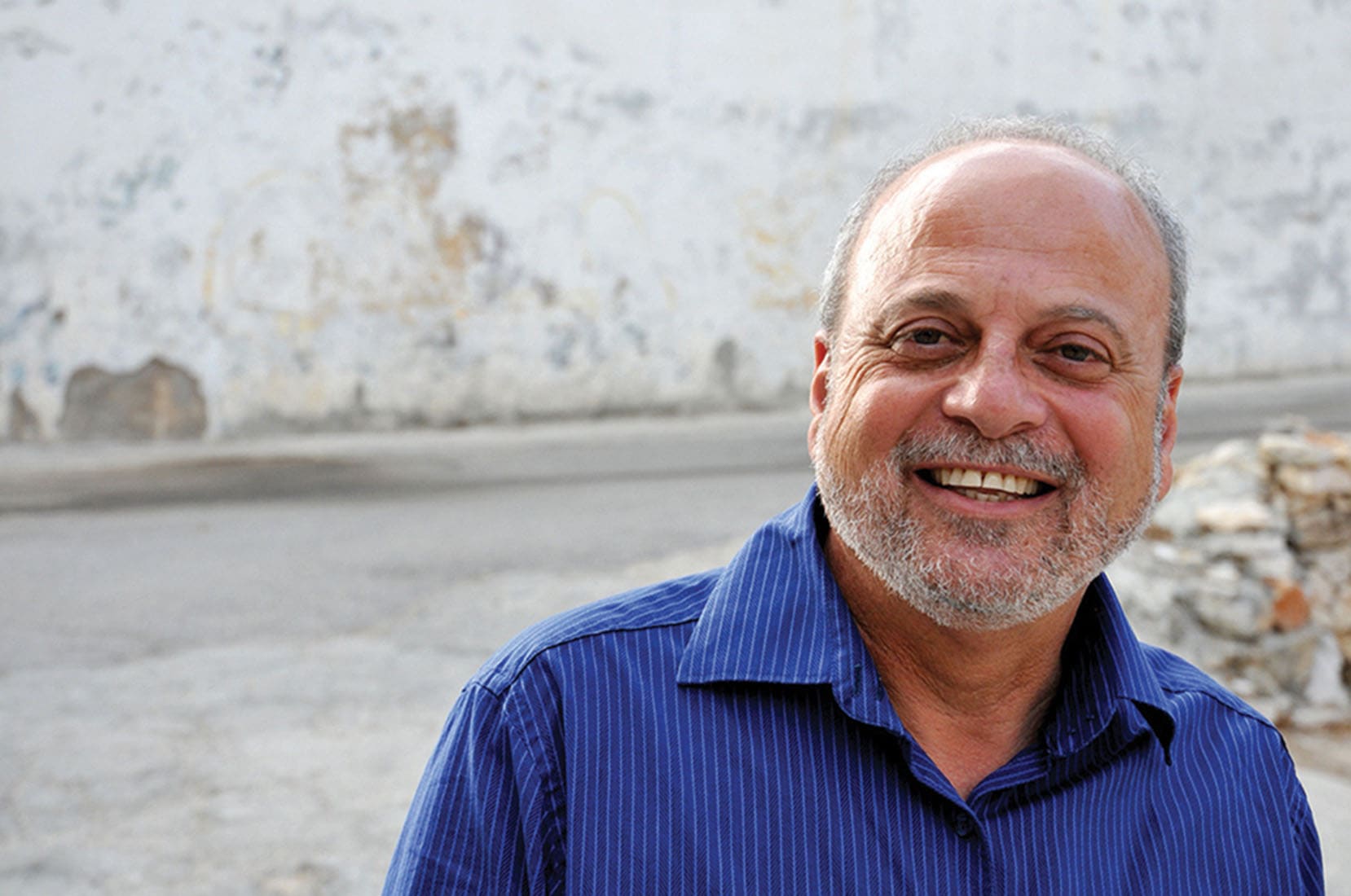 Salim Munayer was born in Lod, Israel. A Palestinian Christian and an Israeli citizen, he is passionate about reconciliation, or musalaha in Arabic.
Salim Munayer was born in Lod, Israel. A Palestinian Christian and an Israeli citizen, he is passionate about reconciliation, or musalaha in Arabic.
In 1990, Salim founded the nonprofit organization Musalaha to promote and facilitate reconciliation between Israelis and Palestinians from a range of ethnic and religious backgrounds. One aspect of that work is their recent Bridge Building initiative, which brings together people from Muslim, Jewish, Christian, and other religious or non-religious backgrounds to pursue reconciliation through the biblical principles of peace, tolerance, and love. Participants engage in desert encounters, seminars, and international conferences.
Salim also teaches at Bethlehem Bible College in the West Bank, and is an adjunct professor at Fuller Theological Seminary in Pasadena, California. Serve Globally, including Covenant World Relief, partners with both Musalaha and Bethlehem Bible College.
How does reconciliation happen between people groups with such a long history of deep conflict?
There is a big discrepancy in the historical narrative over whether the Israelis or the Palestinians started the conflict. The gap is so big you wonder whether people are living in the same land and experiencing the same wars.
It takes a year and a half to two years for each Musalaha cohort to go through the reconciliation process. When we start talking about political realities, it is very challenging. Yet our aim is to say, “I want to be in the light and not go back into the cave.” We don’t have the critical mass yet to impact how the government will act, but we can encourage individuals not to participate in oppression and retaliation.
Why do you bring people together in the desert?
A major obstacle to reconciliation is geographical separation. We have the West Bank barrier that keeps people apart from each other. In contrast, the desert is neutral ground. We see in Scripture how often God meets people in the desert. It is a place of transformation. We’ve found it to be a place where people start to engage with one another, where they can begin to tell each other their stories.
It is so important to the process of reconciliation because people have dehumanized and demonized the other. That is the root problem of everything. When we dehumanize people, then we justify the violence we commit against each other. So before people can debate issues or even start to have real peace, you have to get to know one another.
Jesus’s call to love our enemies is core to your ministry. What does loving your enemy look like?
We discover God by loving our enemy. Loving our enemy helps us to understand how God loves us because we are each in rebellion against God.
When I love my enemies, I get to know them as people. I want to know their pain, their past. I want to know about their culture. It’s also about learning how I have caused them pain. And it’s not just about the pain I personally have caused but also the pain my people group has caused. It means being willing to look into socioeconomic and political actions that cause pain.
What is the role of the church in reconciliation?
We have to recognize that the church has been a big part of the problem, so it must play a role in healing. For example, the church has contributed to anti-Semitism by demonizing Jewish people. On the other hand, many Christians in the United States believe the establishment of the political state of Israel will hasten the return of Christ.
This theology drives American politics today and marginalizes Palestinians.
Many international Christians find themselves taking sides in the conflict, but that makes the Israel-Palestine situation worse. Rather, Christians need to promote a theology of reconciliation. A theology of reconciliation blesses both Israelis and Palestinians. The Good Samaritan story is a framework—we need to help people regardless of who they are.
The church has a prophetic role. Prophets need to speak to the powers like Nathan did to King David in the Bible. The story of the exodus of God’s people tells us that God always wants to deliver the oppressed. We cannot ignore the reality of injustice—we must address the issues of love and injustice. The polarization of love versus justice doesn’t exist in Scripture. God’s love is redemptive love.
If we want to address the dynamic of the imbalance of power, the change must rise up from the bottom. It won’t be top down. The good news is that 80 percent of peace success is the result of grassroots movement—coming from the bottom up. This is a good message for the church because we’re talking about discipleship. If you reach 2 to 3 percent of your population, you can make change.













